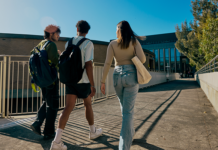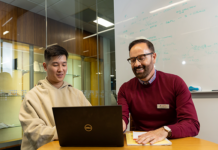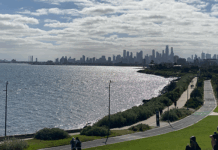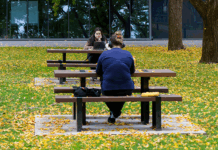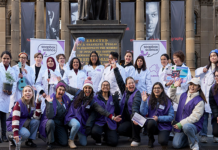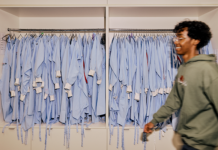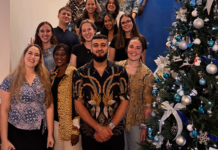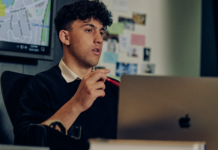Content Note: The following article contains sensitive content, including themes of sexual harm. This may be distressing for some people. Visit Safer Community or Wellbeing Services to seek support as needed.
Being online should be safe for everyone. Unfortunately, we know that this isn’t always the case, and anyone can encounter harmful content online.
We’re running the Safe and Respected at La Trobe Campaign to communicate to students and staff how to access support for sexual harm, including online abuse.
Did you know that there are Online Safety Laws in Australia?
Online Safety Laws are in place to address the most severe types of online abuse and allow the eSafety Commissioner to remove severely harmful online content.
The laws protect against:
- sharing explicit images or videos without consent
- illegal and violent content including the sexual abuse of children or encouraging terrorism
- cyberbullying – when someone uses the internet to humiliate, harass, intimidate or threaten a person under the age of 18
- severely abusive content that is menacing, harassing or offensive and intended to cause serious mental or physical harm to someone who is 18 or older
Tech-facilitated abuse and sexual harm
Technology can be used in harmful ways to cause sexual harm. This includes actions like stalking someone online, sharing private photos without permission, and harassing people online. These are all forms of sexual harm that involve technology. Check out more examples and how to stay safe.
Sexual harm is any behaviour of a sexual nature that is non-consensual, unwanted or unwelcomed, and makes someone feel humiliated, frightened, intimidated or threatened. Sexual harm can occur in-person, online or via the use of technology.
There are criminal laws that cover image-based abuse.
Remember, it’s not your fault if someone shares or threatens to share an intimate image or video of you without your consent. Even if you sent it to them in the first place…they have no right to share the content with others.
From the image-based abuse webpage from the eSafety Commissioner.
Staying safe online – The eSafety Commissioner
Part of the E-safety Comissioner’s role is to promote safe and positive online experiences. Make sure you think before you engage, set boundaries on tagging, check your privacy settings.
- Take a look at e-safety’s detailed advice for staying safe online.
- For navigating particular social platforms safely, check out the e-safety guide.
Did you know you can report online harm to the eSafety Commissioner?
The Safe and Respected at La Trobe Campaign
Starting on 24 February during Orientation and running for 5 weeks, La Trobe is running an awareness campaign – Safe and Respected at La Trobe – that aims to help prevent and respond to sexual harm in all its forms.
You might see campaign posters around our campuses. We want to communicate to students and staff how to access support for sexual harm, including online abuse.
View the Safe and Respected at La Trobe campaign website to learn more.
How to get support from Safer Community
You can access La Trobe’s Safer Community Service, a free and confidential support service for all La Trobe students and staff.
If you witness or experience inappropriate, threatening or concerning behaviour of any kind, online, or in-person, please visit the Safer Community website to contact the service. You can use the website to contact Safer Community anonymously.
In an emergency call Triple Zero: 000 (0 000 on University phones) and if on campus also call Campus Security on 03 9479 2222 (x2222 from University phones).
Further Support
Online abuse in any form can be stressful for the individual and their family or community. Please consider accessing the following supports.
- ESafety Commissioner: helps you report and deal with online abuse or illegal and restricted content.
- 1800 RESPECT: national sexual assault, domestic, family violence counselling service. Tel: 1800 737 732.
- CASACV: for Bendigo students, trauma-informed counselling, advocacy and support for students who have experienced sexual assault, either recently or in the past.
- NCASA: 03 9496 2369, a sexual assault service located in Heidelberg. An NCASA counsellor also visits the Melbourne (Bundoora) Campus weekly and can be accessed through Health Wellbeing and Inclusion.
- Sexual Assault Crisis Line: provide crisis response, support and advocacy for people who have experienced Sexual violence. After Hours Tel: 1800 806 292.
- Djirra: Djirra is a place where culture is shared and celebrated, and where practical support is available to all Aboriginal women and particularly to Aboriginal people who are currently experiencing family violence or have in the past. Tel: 1800 105 3030.
- Daisy app: connecting women who are experiencing or have experienced sexual assault, and domestic and family violence to services in their state and the local area.
- QLife: counselling for LGBTIQ people, by LGBTIQ people. Tel: 1800 184 527.
- Men’s Line: Free professional 24/7 telephone counselling support for men with concerns about mental health, anger management, family violence (using and experiencing), addiction, relationships, stress, and wellbeing. Tel: 1300 78 99 78.
- If someone is in danger or requires immediate support, please call emergency services (000).
